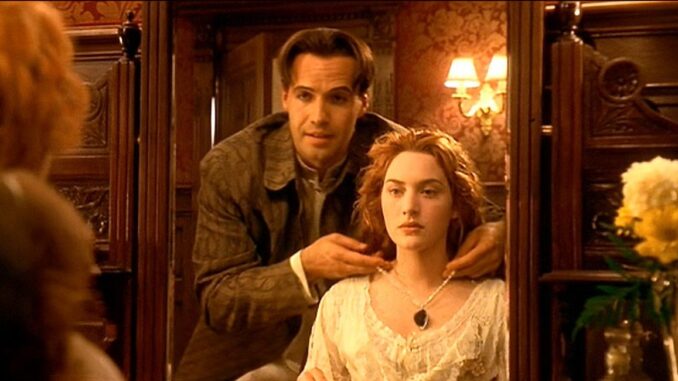
The icy depths of the Atlantic hold many secrets, but few are as enduringly, magnificently tragic – or perhaps, comically so – as the phantom pain of Caledon Hockley, channeled through the eternally chiseled visage of Billy Zane. It’s been decades since the RMS Titanic completed its infamous, singular voyage, and yet, in the collective cinematic consciousness, Billy Zane, as Cal, remains perpetually adrift, a heart-shaped locket of indignation clutched in a silk-gloved hand, forever whispering, “But why Jack?”
To understand this heartbreak is to descend into the very particular hell of the entitled. Cal Hockley, the very embodiment of Gilded Age arrogance, saw Rose DeWitt Bukater not as a partner, but as a meticulously chosen jewel in his already glittering crown. She was the perfect accessory for his wealth, his lineage, his unquestionable superiority. Their engagement was a transaction, a merger of fortunes and appearances, an immutable fact of his perfectly ordered universe. Then, like a rogue iceberg to a gleaming ship, came Jack Dawson – the penniless artist, the scoundrel with the inconveniently soulful eyes and the infuriating ability to make Rose laugh.
Cal's initial reaction wasn't just anger; it was a profound, seismic offense. How dare this vagrant, this steerage rat, undermine the very foundation of his carefully constructed reality? It was incomprehensible. Rose, his porcelain doll, his acquisition, was not supposed to possess agency, let alone a reckless, self-destructive desire for "freedom" and "passion" with a man who couldn't even afford a decent suit. The moment Rose spat in his face, choosing the cold embrace of the ocean over his suffocating diamonds, was not just a rejection; it was an existential blow.
And so, years later, the heartbreak lingers. It’s not the wistful ache of a love lost, for Cal understood love as possession, not connection. No, this is a heartbreak born of profound, unshakeable humiliation. It is the festering wound of being chosen over nothing, over a man who quite literally owned nothing but the clothes on his back and the charm in his smile. Imagine Cal, decades later, still unable to shake the memory. Perhaps he’s in a wood-paneled study, the scent of expensive cigar smoke thick in the air, a single malt scotch clinking in his glass. He gazes out at a manicured lawn, but sees only the flickering memory of Rose, hand in hand with Jack, dancing a jig on the lower decks.
Every triumph Cal achieved in the ensuing years – every successful business deal, every societal conquest – would be tainted by this single, glaring failure. The "what if" isn't a romantic longing, but a gnawing question of how he could have miscalculated so catastrophically. Did he not offer enough? Was his status not impressive enough? Did he not possess the most perfect, gleaming, diamond necklace in the world? He was the winner, the survivor, yet he lost the one thing he coveted not for its intrinsic value, but for its symbolic affirmation of his power.
For Billy Zane, the actor, this enduring heartbreak is a double-edged sword. He's played countless roles, but none are as indelibly linked to him as the villainous, yet strangely sympathetic, Cal. In the public's eye, a part of Zane is Cal, forever gazing out at the cinematic ocean, a ghost of a cigar still between his fingers, wondering why Rose, his Rose, would plunge into the frigid depths for a scoundrel when a lifetime of comfort and controlled devotion awaited her. It’s a testament to Zane’s powerful performance that Cal’s wounded pride transcends the screen and lives on as an almost tangible entity, a meme before memes existed.
So, yes, after all these years, Billy Zane’s Cal Hockley is still heartbroken. Not in the swooning, poetic sense of Romeo, but in the bitter, indignant fashion of a man who believed he held all the cards, only to find the true game being played on a deck he didn’t even know existed. His is the agony of the powerful brought low by the intangible, the ineffable, by something as inconveniently messy as true love. And in that eternal, seething resentment, lies the dark, comedic, and strangely enduring appeal of cinema's most perfectly jilted millionaire. He survived the sinking, but his ego never truly resurfaced.